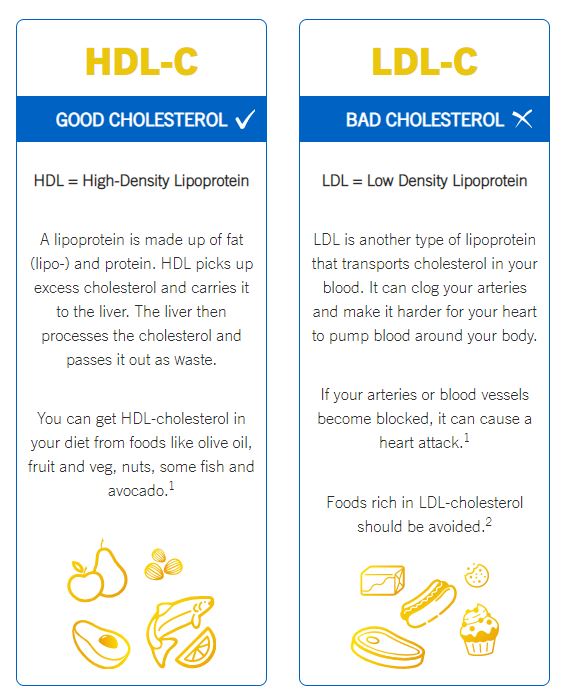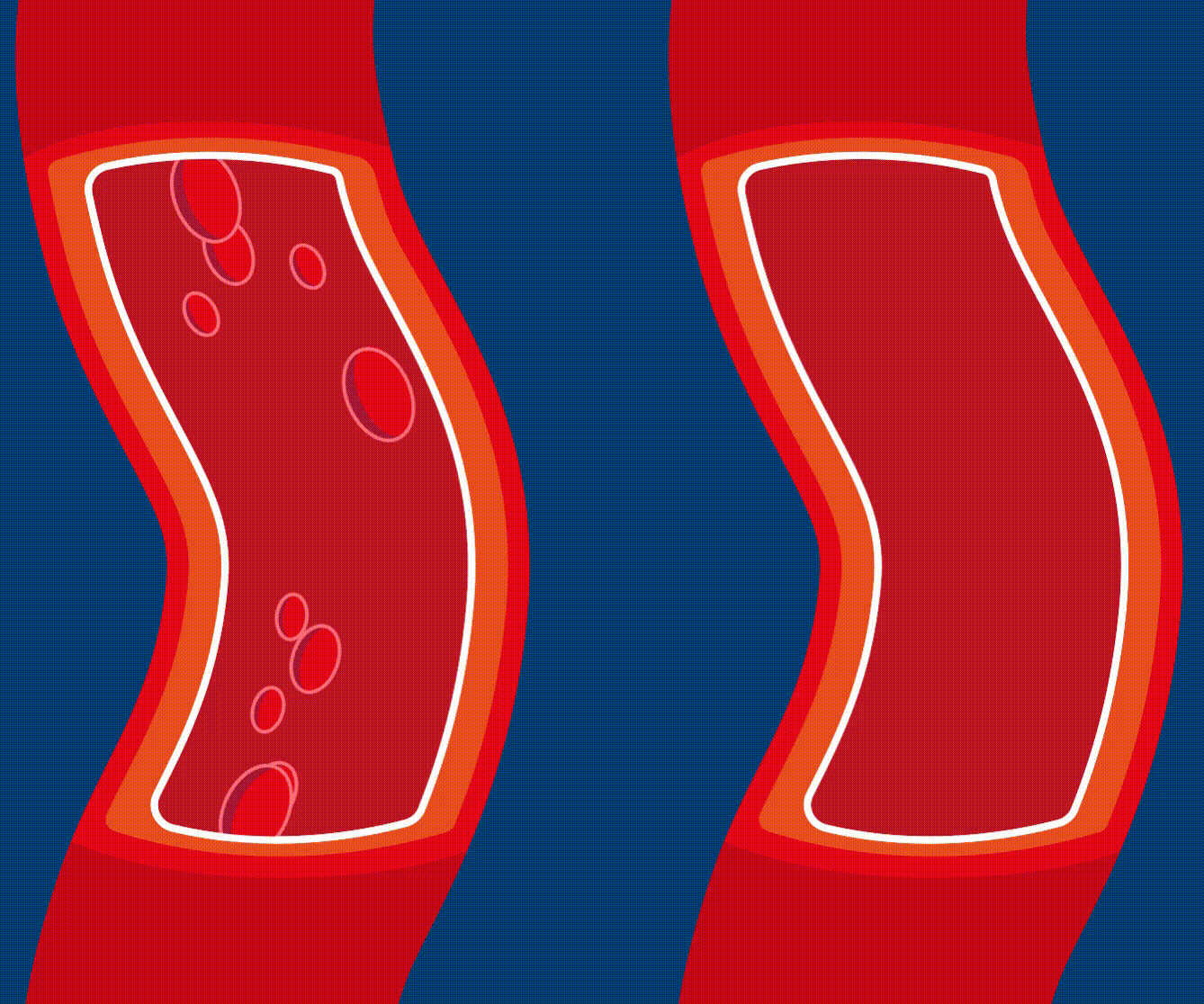Diet and lifestyle changes are a good start to lowering bad cholesterol (LDL-C), but for some people, medication may also be needed.6
Statins are the most common type of medication used to lower LDL-C and have been shown to reduce the risk of heart attack and stroke. They include atorvastatin, fluvastatin, pravastatin, rosuvastatin and simvastatin. Statins work by blocking a substance in the body that is needed for making cholesterol.7
Depending on your risk level, you may need additional medication to reduce your level of bad cholesterol (LDL-C) even further, such as a medication called ezetimibe. You may also find you cannot take statins or high doses of statins due to uncomfortable side effects. In these cases, your doctor will consider LDL-C lowering medications including Repatha®, either alone or, where possible, in combination with a statin.









